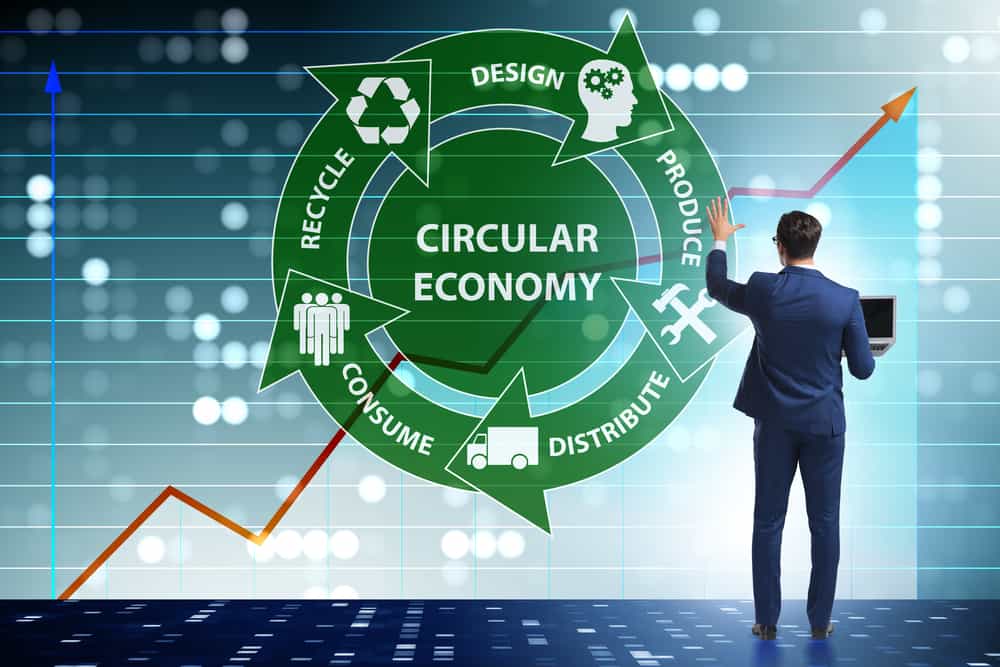Circular economy: much untapped potential
The circular economy in Switzerland has great potential: this is shown by the data from the first representative BFH/KOF study of Swiss companies. Switzerland, as a location for innovation with a well-trained workforce and high quality standards, is well placed to make better use of the opportunities offered by the circular economy in the future.

Today, only ten percent of Swiss companies implement substantial activities in the area of the circular economy and thus generate a significant share of their turnover. Many companies have not implemented any activities in the area of the circular economy in the last three years, or have only undertaken activities to increase efficiency. This is the result of a study just published by the Swiss Institute for Business Cycle Research (KOF) at ETH Zurich and the Bern University of Applied Sciences (BFH, Department of Economics). The status report on the Swiss circular economy, based on this data, was prepared with the support of Circular Economy Switzerland and the Federal Office for the Environment ( cf. Status_report_of_the_Swiss_circular_economy )
What is to be done?
Efficiency-enhancing measures are the first important steps. However, more is needed for a functioning circular economy. Activities to close the loop (e.g. renting instead of buying, reprocessing products) and to extend the life of products (e.g. reparability, product upgrades) are needed. As the published study shows, such activities are currently hardly implemented, the media release states.
The study also describes the companies that are active in the circular economy and the hurdles that currently prevent companies from implementing these activities. Based on this, conclusions are drawn about how the transformation to a circular economy could be stimulated. Circular Economy Switzerland emphasises that the circular economy is an innovation challenge. However, there is currently a lack of opportunities and knowledge to adapt existing products and services to a circular economy. Often, small companies in particular can hardly overcome these hurdles on their own. This is why attractive economic policy framework conditions are needed, especially because companies are integrated into networks of suppliers and customers. This is why cross-company initiatives are needed to make progress in the transformation process.
However, the conditions for accelerating the transformation to a circular economy in Switzerland in the future are good. As one of the most innovative countries in the world, Switzerland has comparative advantages in generating sustainable competitive advantages in the transformation. In addition, there are already lighthouse projects in many sectors that show that a successful transformation is entirely possible.
Circular economy to combat climate change
At COP 26 in Glasgow, the circular economy was discussed as an important part of the solution to combat climate change and achieve the goals set out in the Paris Agreement. In addition, the circular economy offers opportunities for new, innovative business models, conserves resources and strengthens regional value creation, according to the study. For Switzerland in particular, with its limited resources, the circular economy therefore promises great potential. The parliamentary initiative "Strengthening the Swiss Circular Economy" should now create new framework conditions for a modern, environmentally friendly circular economy in Switzerland. It has been adopted by the Commission for the Environment, Spatial Planning and Energy and is in the consultation phase until 16 February 2022.
Source: BFH, KOF, Circular Economy Switzerland
Methodology of the study
Based on a specifically developed concept for mapping the circular economy at company level, the approximately 8,000 companies in the KOF company panel representative of Switzerland were surveyed in writing in 2020. In the process, the extent to which the companies have achieved measurable changes in the period from 2017 to 2019 was surveyed for 27 specific activities in the field of the circular economy. The data collected allows a comparison between industries, regions and companies of different sizes and thus for the first time shows a representative and differentiated picture of the spread of circular activities in companies for Switzerland.
Background information on the topic of circular economy:
circular-economy-switzerland.ch/knowledge/
Other topics:
Starting signal for "Circular Globe" label
How the CH economy can better implement the circular economy









